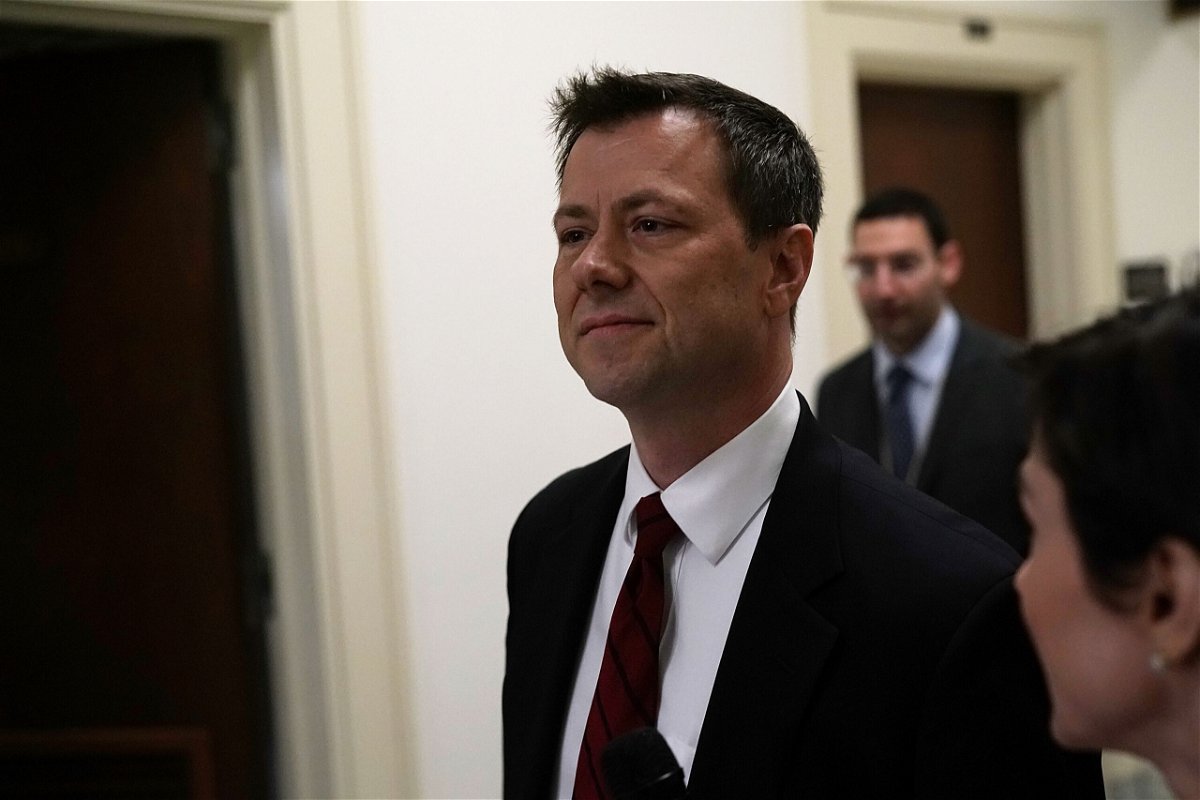Biden faces October deadline to decide whether to help Trump avoid questions in Strzok lawsuit

President Joe Biden's White House has until mid-October to decide if he wants to assert executive privilege and hinder an effort to obtain testimony from former President Donald Trump about Trump's pressure campaign to get former FBI Agent Peter Strzok fired.
By Tierney Sneed
President Joe Biden’s White House has until mid-October to decide if he wants to assert executive privilege and hinder an effort to obtain testimony from former President Donald Trump about Trump’s pressure campaign to get a then-top FBI agent fired.
US District Judge Amy Berman Jackson set the October 14 deadline at hearing Wednesday in the lawsuit brought by former top FBI counterintelligence official Peter Strzok, who was terminated by the FBI in 2018 after the revelation of anti-Trump texts which Strzok exchanged with a top FBI lawyer that he was having an extramarital affair with at the time.
Jackson’s request that the Biden White House make clear its intentions for asserting privilege in depositions Strzok is seeking in the case is the latest decision confronting the President and his administration about what lengths it should go to protect Trump in court.
Biden has declined to assert privilege in some of the testimony and documents that the House January 6 Committee has obtained, but he has asserted privilege for other information sought by the committee. The Biden-era Justice Department has also sought to shield Trump in a defamation lawsuit brought by a woman who accused Trump of sexual assault.
Previously in the Strzok case, the Justice Department had sought to quash Strzok’s subpoena of Trump under a legal principle that sets the bar high for when current or former high-ranking government officials can be compelled to testify in a case. Jackson has not resolved the merits of those arguments, but she said Wednesday that she wanted to begin the process of litigating the privilege issues.
The Justice Department has also asked the court to block a deposition Strzok is seeking of FBI Director Chris Wray.
A deposition of former Deputy Attorney General Rod Rosenstein is scheduled for next month, and other former lower ranking officials have also been deposed.
Strzok — who was involved in both the Trump-Russia probe and the investigation into Hilary Clinton’s private email server — sued the Justice Department, the FBI, and those agencies’ leaders in 2019. He alleges the Justice Department violated his constitutional rights and the Privacy Act in how it went about firing him and publicly releasing his texts with former FBI attorney Lisa Page. Page — who was also involved in those probes — has brought a lawsuit of her own against the Justice Department. Her and Strzok’s cases have been consolidated for the purposes of discovery.
Strzok was a target of verbal attacks by Trump and his allies as part of the larger ire Trump expressed towards the FBI during the Trump-Russia investigation. Trump repeatedly called publicly for Strzok’s ouster until Strzok was fired in August 2018.
At Wednesday’s hearing, DOJ attorneys indicated that two buckets of executive privilege may be in play: privilege protecting presidential communications and a privilege for the deliberative process behind decision-making.
Jackson raised questions about whether those privileges would apply in a situation dealing with an employment decision, rather than devising policy.
After Strzok’s team deposes Rosenstein and former FBI Deputy Director David Bowdich next month, Strzok will lay out in a court filing due September 29 the subject areas and questions he would like to ask Trump and Wray about.
In the filing due October 14, the Justice Department will tell the court over which areas of questioning the government intends to assert the presidential communications privilege or the deliberative process privilege. Another round of briefing about executive privilege in the case will be due October 28.
The-CNN-Wire
™ & © 2022 Cable News Network, Inc., a WarnerMedia Company. All rights reserved.